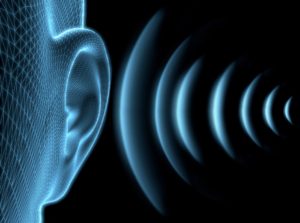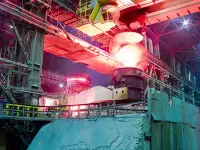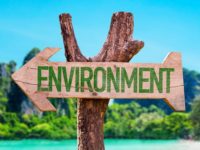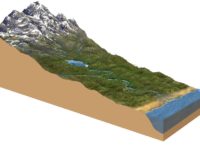
Noise Impact Modeling Specialists combine statistical expertise with environmental science to analyze how sound affects communities, ecosystems, and public health. These specialized environmental scientists earned a median salary of $78,980 in 2022, with federal government positions offering significantly higher compensation. The field is projected to grow 6% through 2032, driven by increasing awareness of noise pollution's health and environmental impacts.
Welcome to EnvironmentalScience.org, your comprehensive resource for specialized environmental science careers. If you're fascinated by the intersection of acoustics, data science, and environmental protection, noise impact modeling represents a unique career path that's both technically demanding and environmentally critical. Noise Impact Modeling Specialists serve as the analytical experts who determine whether a new highway will disrupt residential quality of life, how industrial operations affect protected habitats, or if flight paths compromise community health.
This isn't just about measuring decibels. It's about translating complex acoustic data into actionable insights that shape urban planning, protect public health, and preserve environmental quality. These specialists work at the cutting edge of environmental monitoring, where advanced statistical methods meet real-world policy decisions.
What Does a Noise Impact Modeling Specialist Do?
Data modeling skills apply across countless fields, but Noise Impact Modeling Specialists bring something unique to the table: specialized environmental knowledge about acoustic impacts. While general data modelers crunch numbers, noise specialists understand how sound propagates through landscapes, how communities experience different frequencies, and what levels trigger ecological stress.
Think of them as environmental detectives working with invisible evidence. They're a type of environmental monitor, though they track sound waves rather than tangible elements like air particles or water contaminants. Their work begins with comprehensive data collection using remote sensing equipment and monitoring stations deployed across study areas.
Here's how the process typically unfolds. First, specialists collect large datasets from strategically placed acoustic sensors around the project site. These might be stationary monitors that record continuously for weeks, or mobile units that capture snapshots across different times and conditions. The raw data comes in as digital sound files, frequency measurements, and amplitude readings-thousands of data points that mean nothing until properly analyzed.
Next comes the modeling phase. Specialists import this data into sophisticated software platforms. Geographic Information Systems (GIS) create visual maps showing how noise spreads across terrain-think of it as painting a sound landscape where colors represent volume levels and patterns show how buildings, trees, and topography shape acoustic paths. You can learn more about this powerful tool through our guide to GIS applications.
Simultaneously, statistical packages like SPSS crunch the numbers to identify trends, seasonal variations, and impact thresholds. While GIS tells the story spatially, SPSS answers questions quantitatively: Is the noise increasing over time? Which hours see peak levels? How much does the weather affect sound propagation?
The final step involves synthesizing findings into reports that guide decision-makers. Noise Impact Modeling Specialists provide concrete answers to critical questions:
- Will constructing a new freeway here reduce property values and resident well-being in adjacent neighborhoods?
- How will noise from this planned industrial park affect the nearby residential development?
- Does this proposed flight path threaten this environmentally protected landscape or endangered species habitat?
- What mitigation measures-sound barriers, buffer zones, operational restrictions-will reduce impacts to acceptable levels?
These assessments directly influence environmental planning decisions, zoning approvals, and regulatory compliance. In many cases, projects can't move forward without a comprehensive noise impact analysis demonstrating acceptable acoustic effects.
Where Does a Noise Impact Modeling Specialist Work?
Noise Impact Modeling Specialists perform the same core analytical work regardless of employer, using consistent methodologies and technologies across sectors. For employment classification purposes, they're grouped with Environmental Scientists and Specialists by the Bureau of Labor Statistics. However, don't let this broad category fool you-noise pollution expertise represents a distinct specialization within environmental science.
Understanding the scale of this issue matters. Noise is a major concern for modern environmental health, yet it remains one of the least understood forms of pollution among the general public. We're learning more each year about how chronic noise exposure contributes to cardiovascular disease, sleep disruption, cognitive impairment in children, and ecosystem stress.
The work environment typically blends office-based analysis with occasional field monitoring. Most days, you'll find specialists at their desks running models, interpreting data, and preparing reports. However, initial data collection and equipment calibration require site visits-sometimes to construction zones, transportation corridors, or industrial facilities. These field sessions ensure that the data reflect real-world conditions and that the monitoring equipment operates correctly.
Here's how specialists are distributed across employment sectors, based on environmental scientists and specialists more broadly:
| Employment Sector | Percentage | Primary Responsibilities |
|---|---|---|
| Environmental Consulting & Technical Services | 23% | Provide independent noise impact assessments for construction firms, developers, and government agencies. Support regulatory compliance and permitting processes. Projects range from single-building developments to major infrastructure. |
| State Government | 22% | Advise decision-makers and elected officials on public land development, infrastructure projects, and zoning decisions. Produce reports guiding state-level environmental policy and development permits. |
| Local Government | 13% | Support municipal planning departments, evaluate local development proposals, assess residential complaints about commercial/industrial noise, enforce local ordinances. |
| Engineering Services | 10% | Work on-site during active construction and operations, conduct real-time monitoring, participate in equipment selection and operational planning to minimize acoustic impacts on surrounding areas. |
Consulting work offers variety-every project brings new challenges and different acoustic environments. Government positions provide stability and the satisfaction of directly shaping public policy. Engineering services provide hands-on experience, showing how theoretical models translate into actual construction and operational practices.
Some specialists also work for international environmental organizations, contributing expertise on transnational projects where noise regulations cross jurisdictional boundaries. These roles often involve setting standards and best practices that influence global development.
The rise of sustainability as a core business value has expanded opportunities in the private sector. Corporations increasingly employ specialists to ensure their operations meet EPA regulations and international environmental standards before issues arise, rather than addressing violations reactively.
What Is the Average Noise Impact Modeling Specialist Salary?
Noise Impact Modeling Specialists fall under the Bureau of Labor Statistics' broader category of environmental scientists and specialists, which provides the most reliable salary data for this specialization.
As of May 2022, environmental scientists and specialists earned a median annual salary of $78,980, with half earning more and half earning less. However, compensation varies significantly based on employer, experience level, and geographic location.
Federal government positions offer premium compensation, with median salaries reaching $107,960 for environmental scientists and specialists. These roles typically require advanced degrees and specialized expertise, making them competitive but rewarding career destinations for experienced noise modeling professionals.
Salary ranges also vary considerably across experience levels:
- 10th Percentile: $48,380 annually (entry-level positions, often requiring only a bachelor's degree)
- 25th Percentile: $61,480 annually (early-career professionals with 2-4 years eof xperience)
- 75th Percentile: $99,340 annually (senior specialists leading projects, typically with master's degrees)
- 90th Percentile: $129,070 annually (highly experienced specialists in management or federal positions)
Several factors influence where you'll fall in this range. Advanced degrees, particularly master's programs with statistical or acoustic emphasis, significantly boost earning potential. Specialized certifications in noise control engineering or advanced GIS proficiency command higher salaries. Geographic location matters too-specialists working in major metropolitan areas or regions with extensive development typically earn more than those in rural areas with fewer large-scale projects.
Noise Impact Modeling Jobs & Job Description
Noise Impact Modeling Specialists bring unique value to organizations by determining how acoustic emissions affect buildings, infrastructure, ecosystems, and human populations. Whether modeling railway operations, wind turbine installations, or automotive testing facilities, these specialists translate complex acoustic data into actionable recommendations.
Entry-Level Position Requirements
Starting your career as a Noise Impact Modeling Specialist requires building a foundation in both environmental science and data analysis. Entry-level positions typically expect you to handle data collection and preliminary analysis under supervision, while developing your modeling capabilities.
Core qualifications and responsibilities include:
- Educational foundation: Bachelor's degree in acoustics, engineering, environmental science, or related field with strong quantitative coursework
- Regulatory knowledge: Understanding of environmental policies, especially those governing noise and vibration at federal, state, and local levels
- Collaboration skills: Ability to work effectively both independently and as part of multidisciplinary teams that include engineers, planners, and policy specialists
- Model development: Design noise models using field measurements to calculate present conditions and project future scenarios under different development alternatives
- Impact assessment: Evaluate how various noise and vibration levels affect human populations, wildlife, and built environments
- Field study participation: Conduct on-site data collection, including equipment deployment, measurement recording, and environmental condition documentation
- Equipment proficiency: Operate, maintain, and calibrate acoustic monitoring instruments to ensure data accuracy and reliability
- Technical documentation: Create clear reports, charts, graphs, and models that communicate findings to both technical and non-technical audiences
- Analytical capabilities: Produce both qualitative observations (describing acoustic characteristics) and quantitative measurements (specific decibel readings, frequency distributions)
- Stakeholder communication: Present findings to government officials, clients, project managers, and community members
- Software proficiency: Generate precise computer models using GIS platforms, statistical packages, and specialized acoustic modeling software
Entry-level positions emphasize learning established methodologies while building hands-on experience with real projects. You'll typically work under senior specialists who review your analyses and help you develop professional judgment about when models adequately represent real-world conditions.
Senior-Level Position Requirements
Career advancement into senior Noise Impact Modeling Specialist roles combines technical mastery with project management and team leadership responsibilities. Senior specialists often direct multiple projects simultaneously while mentoring junior staff and representing their organizations in client meetings and regulatory proceedings.
Advanced positions require:
- Advanced education: Master's degree or Ph.D. in acoustics, engineering, environmental science, or related field, demonstrating specialized expertise and research capabilities
- Study design leadership: Plan and direct comprehensive field studies, including site selection, equipment specifications, measurement protocols, and quality control procedures
- Budget management: Prepare detailed project budgets, track expenses, forecast resource needs, and ensure work remains within financial constraints
- Team direction: Guide field teams during data collection, provide real-time strategic decisions, and coordinate multiple concurrent projects
- Quality assurance: Review all modeling outputs produced by junior staff, identify errors or questionable assumptions, and provide constructive technical feedback
- Staff development: Train new specialists in modeling techniques, field protocols, software applications, and professional standards
- Client relations: Conduct high-stakes presentations to clients, government officials, and community stakeholders, defending methodologies and explaining complex findings
- Project oversight: Ensure all deliverables meet quality standards, deadlines, and budget parameters while managing competing priorities
- Innovation leadership: Research emerging acoustic modeling methods, evaluate new technologies, and develop improved analytical approaches for complex scenarios
- Methodological advancement: Pioneer innovative data collection techniques, test new equipment, and publish findings in professional journals
- Knowledge dissemination: Present research at conferences, contribute to industry standards development, and advance the field's understanding of noise impacts and mitigation strategies
Senior specialists often specialize further within noise modeling-focusing on transportation infrastructure, renewable energy installations, industrial operations, or urban planning applications. This specialization builds deep expertise that commands premium compensation and positions you as a subject matter expert.
What Is the Job Demand for Noise Impact Modeling Specialists?
Demand for environmental scientists, including noise modeling specialists, continues growing as environmental awareness expands and regulations become more comprehensive. Science, Technology, Engineering, and Mathematics (STEM) fields are recognized as national skill-shortage areas, with environmental specializations particularly valued as organizations prioritize sustainability and regulatory compliance.
According to current Bureau of Labor Statistics projections, employment of environmental scientists and specialists is expected to grow 6% between 2022 and 2032. This translates to approximately 6,900 new positions annually when accounting for both growth and replacement needs as experienced professionals retire or change careers.
Several trends drive this growth. First, public understanding of environmental health impacts continues to deepen. Research linking chronic noise exposure to cardiovascular disease, sleep disorders, and cognitive impairment has elevated acoustic pollution from a nuisance issue to a genuine health concern. This awareness generates demand for rigorous noise-impact assessments of new developments.
Second, environmental regulations have strengthened and expanded. Federal, state, and local governments increasingly require comprehensive noise studies before approving major projects. International environmental standards also mandate acoustic impact assessments for projects receiving multilateral funding or crossing national boundaries.
Third, the expansion of the renewable energy sector creates specialized demand. Wind farms, solar installations with tracking equipment, and energy storage facilities all generate acoustic emissions requiring expert analysis. Communities near these installations demand assurance that operations won't compromise their quality of life.
Most employment growth is expected in private consulting rather than government. As organizations become more proactive about environmental compliance, they're engaging specialists earlier in project planning rather than addressing issues reactively. This shift toward preventive analysis creates consulting opportunities across industries.
The specialization also offers geographic flexibility. While major metropolitan areas with extensive development generate the most projects, noise impact assessment applies anywhere human activity and environmental sensitivity intersect-from rural wind farms to suburban transportation corridors to urban redevelopment zones.
What Are the Education Requirements to Become a Noise Impact Modeling Specialist?
Currently, no degree programs exist specifically for Noise Impact Modeling Specialists-the field is simply too specialized for dedicated undergraduate majors. However, several educational pathways effectively prepare you for this career. Your journey starts in high school and extends through graduate education, with each stage building capabilities essential for professional success.
High School Preparation
Students interested in noise impact modeling should focus on mathematics, physics, and geography during high school. Strong quantitative skills are non-negotiable in this field-you'll use calculus, statistics, and linear algebra regularly in modeling work. Physics provides an essential understanding of wave mechanics, sound propagation, and environmental interactions. Geography introduces spatial thinking that directly translates into GIS applications.
Biology courses may help if you're interested in ecological impact assessment, particularly how noise affects wildlife behavior, breeding success, and habitat use. However, physics and mathematics remain the critical prerequisites for most environmental science programs.
Target strong grades in these courses. Competitive undergraduate programs typically expect A's and B's in STEM subjects, as well as solid performance in writing and communication courses. Remember, this career requires explaining complex technical findings to non-technical audiences-written and verbal communication skills matter as much as analytical capabilities.
Undergraduate Education
Undergraduate students have several viable pathways into noise impact modeling. The most common route involves majoring in environmental science while heavily emphasizing statistics and information technology through electives and minor programs.
An environmental science degree provides the ecological knowledge, regulatory understanding, and foundation in environmental chemistry you'll need. Within that major, prioritize courses in:
- Environmental monitoring and assessment
- Quantitative analysis and research methods
- Environmental data analysis
- GIS and spatial analysis (explore our environmental biology and GIS resources)
- Environmental policy and regulation
- Field methods and instrumentation
Your minor or elective concentration should focus heavily on data science capabilities. Key courses include:
- Statistics and biostatistics
- Database management
- Computer programming (Python and R are particularly valuable)
- Advanced GIS applications
- Data visualization
- Machine learning fundamentals (increasingly relevant for pattern recognition in acoustic data)
Alternative pathway: Some students major in mathematics, statistics, or data science while minoring in environmental science. This approach works well if you're confident in quantitative work and can self-study environmental concepts. Consider exploring data science or data analytics degree programs with an environmental focus.
Many successful professionals also come from engineering backgrounds-particularly acoustical engineering, environmental engineering, or civil engineering with environmental emphasis. If your school offers acoustics coursework, take it. Even introductory acoustics provides a valuable foundation for understanding sound measurement and propagation.
With a bachelor's degree and relevant coursework, most graduates can secure entry-level positions as junior analysts or field technicians. You'll initially work under supervision, but this provides the practical experience needed for career advancement.
Graduate Education
Master's degrees are strongly recommended for professionals aspiring to lead projects independently, collect and analyze their own data, and produce reports that directly inform decision-making. Advanced education significantly improves both career advancement prospects and earning potential.
Master's programs provide several critical advantages. First, they offer specialized coursework unavailable at the undergraduate level-advanced statistical methods, sophisticated modeling techniques, and cutting-edge environmental monitoring technologies. Second, they require independent research projects that demonstrate your capability to design studies, collect data, analyze findings, and defend conclusions. This research experience directly translates to professional responsibilities.
Strong graduate program options include:
- Master of Science in Environmental Science (with quantitative/modeling emphasis)
- Master of Science in Environmental Data Analytics
- Master of Environmental Engineering
- Master of Science in Acoustics (if available-limited programs exist)
- Master of Science in Statistics (with environmental applications)
When evaluating programs, look for faculty conducting environmental monitoring or acoustic research, access to field equipment and laboratory facilities, opportunities for training in GIS and statistical software, and partnerships with consulting firms or government agencies that offer internship pathways.
Your thesis or capstone project should involve actual noise data collection and modeling, if possible. Nothing prepares you better than wrestling with the messiness of real-world acoustic data-weather variations, equipment malfunctions, unexpected noise sources, and the challenge of translating measurements into meaningful impact assessments.
Doctoral Education
Doctorates aren't necessary for most noise impact modeling careers, but they can open doors to senior government positions, research leadership roles, and academic appointments. Ph.D. programs suit students interested in advancing the field's methodological foundations or conducting long-term research on specific impact types.
Doctoral training involves developing new analytical approaches, conducting extensive original research, and publishing in peer-reviewed journals. If you're passionate about innovation in acoustic modeling, advancing regulatory standards, or teaching the next generation of specialists, consider Ph.D. programs in environmental science, acoustics, or environmental engineering.
However, for most practitioners, a master's degree combined with professional experience provides optimal preparation. The field values practical expertise and demonstrated project success as much as academic credentials.
Noise Modeling - Related Degrees
Frequently Asked Questions
What's the difference between a noise impact modeling specialist and a general environmental scientist?
While both work with environmental data, noise impact modeling specialists focus specifically on acoustic pollution assessment. General environmental scientists might study water quality, air pollution, soil contamination, or habitat health across various projects. Noise specialists develop deep expertise in sound propagation, acoustic measurement techniques, and noise-specific regulations. They use specialized equipment like sound level meters and frequency analyzers, work with acoustic modeling software, and understand how sound interacts with terrain, buildings, and atmospheric conditions. Think of it as specialization within the broader environmental science field-similar to how a cardiologist specializes within medicine.
Can I become a noise impact modeling specialist with just a bachelor's degree?
Yes, you can enter the field with a bachelor's degree in environmental science, engineering, physics, or related fields with strong quantitative coursework. Entry-level positions as junior analysts or field technicians are accessible to bachelor's degree holders. However, career advancement becomes significantly easier with a master's degree. Bachelor's-level professionals typically work under supervision, conducting data collection and preliminary analysis. Master's degree holders lead projects independently, design studies, and produce reports that directly inform major decisions. If you start with a bachelor's degree, expect to pursue graduate education within a few years to improve your advancement prospects and earning potential.
What software programs do noise impact modeling specialists need to know?
Three categories of software dominate this field. First, Geographic Information Systems (GIS) platforms such as ArcGIS or QGIS create spatial models that show how noise propagates across landscapes. Second, statistical analysis packages such as SPSS and R, or Python libraries, process acoustic data to identify patterns, trends, and impact thresholds. Third, specialized acoustic modeling software simulates sound propagation under different scenarios. Additionally, you'll use database management systems to handle large datasets and standard office software for reports and presentations. Most employers provide training on their specific software preferences, but general familiarity with GIS and statistical packages gained during your degree programs gives you a significant advantage.
Is noise impact modeling a growing field?
Yes, demand for noise impact modeling specialists is growing along with the broader environmental science profession. The Bureau of Labor Statistics projects 6% growth in environmental scientist and specialist positions through 2032, with approximately 6,900 new positions annually. Several factors drive this growth: increasing public awareness of noise pollution's health effects, stronger environmental regulations requiring acoustic assessments before project approval, renewable energy expansion (wind farms and solar tracking systems both generate noise requiring analysis), and more proactive corporate environmental compliance. The shift toward preventing problems rather than addressing violations reactively creates particularly strong demand in private consulting.
Do noise impact modeling specialists work outdoors or in offices?
Both, though most time is spent in offices. The typical work balance involves 70-80% office-based analysis-running models, processing data, creating reports, and meeting with clients or project teams. The remaining 20-30% involves field work: deploying monitoring equipment, conducting measurement sessions, verifying site conditions, and calibrating instruments. Field sessions might last a few hours or several days, depending on the project's scope. Some specialists prefer roles with more field work (common in engineering services), while others focus primarily on analytical work (typical in government or consulting). Weather affects field schedules-equipment must be protected from rain, and wind conditions influence measurements -so you'll need flexibility to reschedule outdoor work.
What Kind Of Societies and Professional Organizations Do Noise Impact Modeling Specialists Have?
Professional organizations provide valuable resources for noise impact modeling specialists, including continuing education, networking opportunities, research updates, and career development. The following organizations support professionals working in acoustic assessment and environmental health:
- National Environmental Health Association: Environmental health encompasses multiple issues affecting human wellbeing and ecological integrity, with noise pollution representing a growing concern. NEHA provides resources on the health effects of environmental exposures, regulatory updates, and professional development for environmental health specialists. Their conferences and publications address noise as part of comprehensive environmental health practice.
- Institute of Noise Control Engineering: The United States' only organization dedicated specifically to noise control engineering, INCE serves professionals whose work focuses on acoustic emission reduction and impact mitigation. As part of an international consortium addressing global noise pollution, INCE provides technical resources, certification programs, and forums for sharing research findings. Their publications and conferences represent the cutting edge of noise control science and engineering practice.
- World Forum For Acoustic Ecology: This global organization brings together researchers, practitioners, and advocates interested in acoustic environments and their effects on human and ecological health. WFAE and its regional affiliates host an annual conference promoting multidisciplinary approaches to sound studies. The organization bridges artistic, scientific, and policy perspectives on acoustic environments, providing valuable context for specialists working in impact assessment.
Membership in these organizations demonstrates professional commitment and provides access to resources that enhance your expertise. Many employers value participation in professional associations, and networking through these groups often leads to career opportunities and collaborative research projects.
Key Takeaways
- Specialized Data Science Career: Noise impact modeling combines environmental science expertise with advanced statistical and GIS capabilities, creating a unique professional niche at the intersection of acoustics, data analysis, and environmental protection.
- Strong Earning Potential: Environmental scientists and specialists earned a median salary of $78,980 in 2022, with federal government positions offering significantly higher compensation of around $107,960. Salary ranges from $48,380 (entry-level) to $129,070 (senior positions).
- Master's Degree Advantage: While bachelor's degrees qualify for entry-level positions, master's programs dramatically improve career advancement prospects, project leadership opportunities, and earning potential through advanced analytical training and independent research experience.
- Diverse Work Settings: Specialists work across environmental consulting (23%), state government (22%), local government (13%), and engineering services (10%), with each sector offering distinct project types, work environments, and career development paths.
- Growing Professional Demand: The field is projected to grow 6% through 2032 with approximately 6,900 new positions annually, driven by increasing environmental regulations, renewable energy expansion, and heightened awareness of noise pollution's health impacts.
Ready to combine analytical expertise with environmental impact? Explore environmental science degree programs that build the quantitative foundation and environmental knowledge for specialized careers in noise impact modeling and acoustic ecology.
2022 US Bureau of Labor Statistics salary and job growth figures for environmental scientists and specialists reflect national data, not school-specific information. Conditions in your area may vary. Data accessed January 2026.






